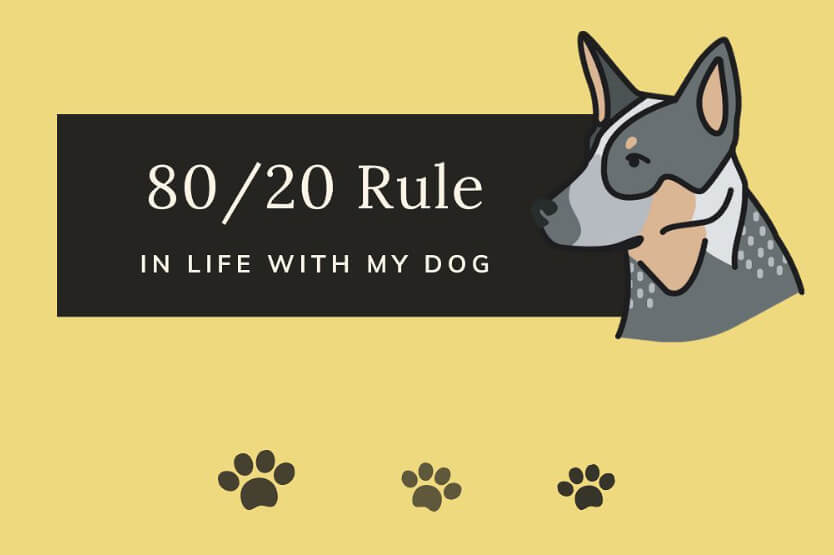The 80/20 rule in enjoying life with my dog
Applying the Pareto Principle to decisions about dog training and enrichment
The 80/20 rule (aka the Pareto principle) is the idea that 20% of causes produce 80% of outcomes.
It’s often seen in business applications—like 20% of donors raising 80% of funds or 20% of clients generating 80% of revenue. (And the not-so-great side, 20% of clients causing 80% of problems.)
It’s also helped me be more intentional as a dog owner. Here’s how!
This is not an exact science, and I think creatures are a bit more complex than “20% of inputs create 80% of outputs”. It’s also difficult to isolate variables in daily life. But considering the 80/20 rule has helped me prioritize my efforts to ultimately live well with Scout.
Entering the dog world was overwhelming
I remember feeling like there was this big, long, sort-of-arbitrary laundry list of “things you’re supposed to do” when I first got more into dog training. I wished I understood some “barriers to entry” right from the get go!
Two years later, my cattle dog and I have done a lot together. Hand-feeding, box feeding, crate training, time on the place command, structured walks, sniffari adventures, trick training, learning about play, and more.
And I really do think some actions have affected our quality of life more deeply than others.
What really matters most?
Evaluating what these “big ticket” items are—often called the “vital few”—makes it possible for me to put our resources where they most count (and not panic when some of the little things get dropped here and there).
This concept is what inspired my revised daily checklist for Scout, where I focus on biological fulfillment above all else.
When I ask myself what 20% of my efforts create 80% of her satisfaction in life, the answer is clear: meeting basic needs and providing outlets for natural instincts.
We “Start With Why”
The 80/20 rule fits in perfectly with two other concepts I love: 1) Simon Sinek’s Start With Why idea (on which I have a longer blog here) and 2) Chad Mackin and Jay Jack’s layered stress model.
If we address the bottom layers of stress—and if we really evaluate the “why” behind our actions—we often find that other issues disappear. When Scout is biologically fulfilled, we don’t need to rely on obedience or structure as much because she’s able to make better decisions on her own without frustration driving her behavior.





